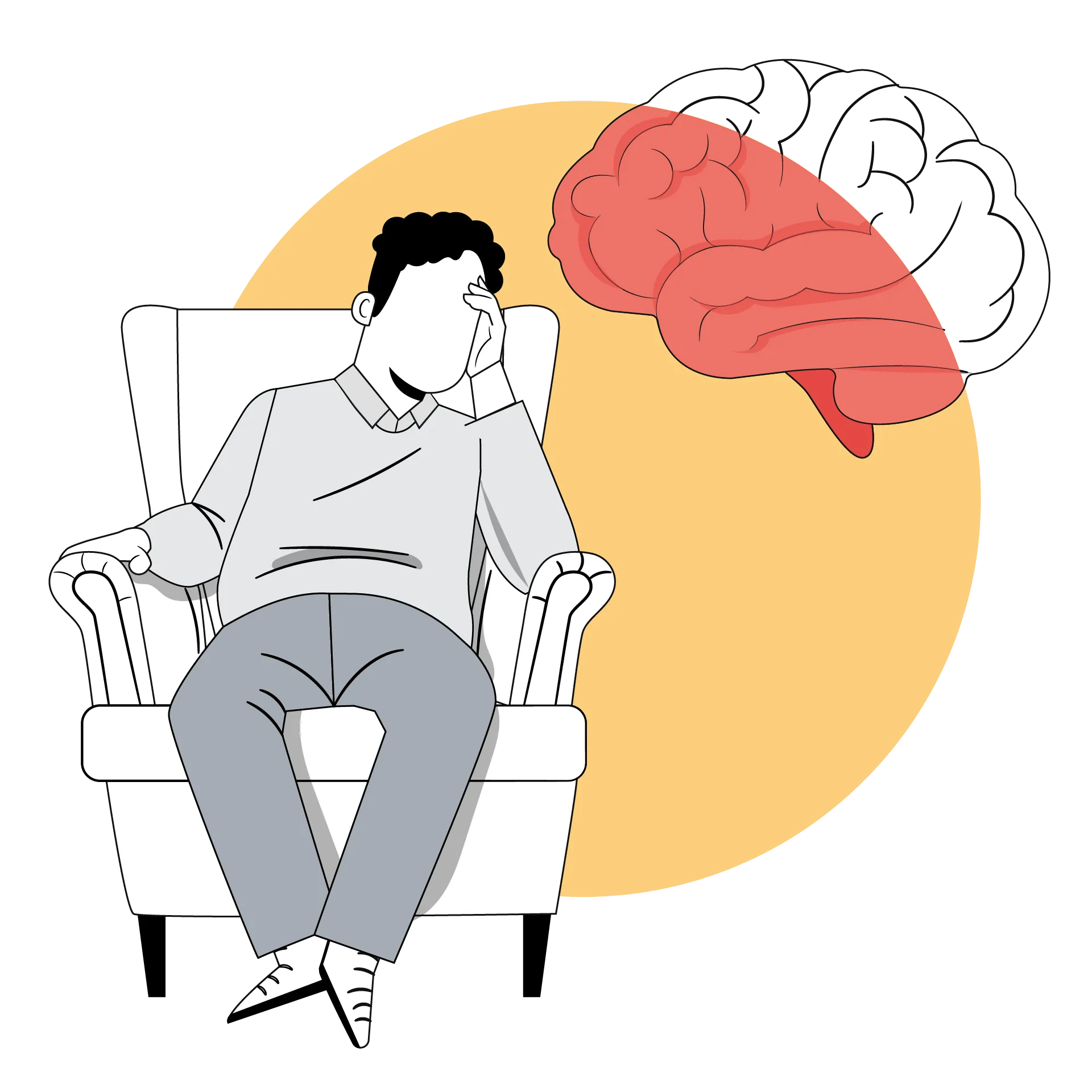Psychiatrist | 4 min read
Epilepsy: A Guide to Symptoms, Diagnosis, and Treatment
Medically reviewed by
Table of Content
Key Takeaways
- Epilepsy is a neurological disorder that causes recurrent seizures
- Other epilepsy symptoms include loss of consciousness and lip smacking
- Ketogenic diets can be followed as a part of the epilepsy treatment
In clinical terms, epilepsy is a neurological disorder that causes you to have seizures repeatedly, possibly without a trigger. Seizure is basically a result of a disturbance or imbalance in brain chemicals. When you experience two or more seizures without any identifiable cause, it is considered epilepsy. Epilepsy can also cause loss of awareness, unusual behavior, or sensations.
Today, epilepsy affects around 50 million people [1] across the world. This condition is more prevalent in elders and children. There is also an increasing chance of epilepsy after the age of 50 [2]. Research also suggests that epilepsy is more common in men than in women [3]. A possible reason for this is higher exposure to certain risk factors like the use of alcohol and head trauma. The two main types of seizures include focal and generalized seizures. The former type affects your brain in one area or part, whereas the latter affects the entire brain.
Mild convulsion or seizure may only be a matter of seconds, and you may not lose consciousness. Because of this, it can be a little difficult to recognize. On the other hand, stronger convulsions may even last for a few minutes. These seizures generally lead to loss of consciousness or a confused state of mind. Moreover, the intensity of this seizure may also cause your muscles to spasm or twitch uncontrollably. As of now, epilepsy has no cure. But with proper medication and measures, you can manage this condition. Read on to know more about epilepsy.
Additional Read: What Is a Seizure?
Symptoms of epilepsy
The most common symptom of epilepsy is recurring seizures. Seizures affect you in different ways depending on how often you feel them and which part of your brain is responsible for them. The other symptoms of epilepsy include
- Jerking and violent movements in arms and legs
- Loss of consciousness
- Stiffness in body
- Difficulty in breathing
- Loss of control in bladder or bowel
- Becoming unresponsive
- Confusion or hazy feeling
- Unusual taste or smell
- Lip smacking
- Staring blankly
- Making random sounds or noises
There can be other symptoms depending on the type of seizure you are having. In most cases, you will not have any recollection of the time in which you had a seizure.

Diagnosis of epilepsy
Diagnosing your exact condition may take a while, as doctors will review all your symptoms and medical history. You may have to undergo several tests to help them determine whether the cause of your seizures is epilepsy or not. Diagnostic tests for epilepsy may include the following:
- Blood test: This is generally done to determine your vitals or if you have genetic conditions, infection, or other conditions that can cause or lead to seizures.
- EEG: You doctor EEG, high-density EEG, or both. It is a common test to determine whether you have epilepsy. The electrodes used in these tests determine which area of your brain is affected as well as your brain’s electrical activity.
- Neuropsychological tests: With the help of this test, doctors evaluate your memory, speech, and thinking abilities. These can further help determine which area of your brain is affected.
- Imaging scans and tests: These tests provide a clear and detailed image of your brain. These images then help your doctor notice any lesions, tumors, or any other abnormality in your brain.
In case treatment of epilepsy requires an operation, your doctor may order a functional MRI. With the help of a functional MRI, your doctor can know which areas are to be protected from injury. This test lets your doctor evaluate and recognize which part of your brain performs critical functions.
Additional Read: World Brain Tumor DayTreatment of epilepsy
Treatment can help you or other people with epilepsy have fewer seizures or, in some cases, no seizures at all. Common treatments for this condition include:
- Special ketogenic diets that can help in controlling seizures
- Medicines for epilepsy are called anti-epileptic drugs (AEDs)
- Small procedure fitted a device that will help control seizures
- Surgery to remove a part of your brain causing the seizures
Uncontrolled seizures may feel overwhelming at times and affect your day-to-day life. It is important not to let epilepsy hold you back, as you can still cope with everyday life. Take help from your friends and family. Some people with this condition require treatment for their whole life, but you can stop if the seizures disappear with time. You may not require any treatment in case you have identified and avoided the triggers like anxiety, stress, sleep deprivation, and more. Talk to a specialist to get the right advice. You can also book an online doctor consultation on Bajaj Finserv Health. Take a step ahead to manage your epilepsy symptoms and prioritize your health!
References
- https://www.who.int/news-room/fact-sheets/detail/epilepsy
- https://www.ncbi.nlm.nih.gov/books/NBK430765/
- https://www.frontiersin.org/articles/10.3389/fneur.2021.643450/full
Disclaimer
Please note that this article is solely meant for informational purposes and Bajaj Finserv Health Limited (“BFHL”) does not shoulder any responsibility of the views/advice/information expressed/given by the writer/reviewer/originator. This article should not be considered as a substitute for any medical advice, diagnosis or treatment. Always consult with your trusted physician/qualified healthcare professional to evaluate your medical condition. The above article has been reviewed by a qualified doctor and BFHL is not responsible for any damages for any information or services provided by any third party.





